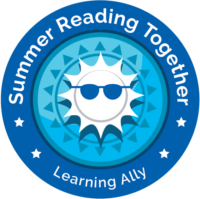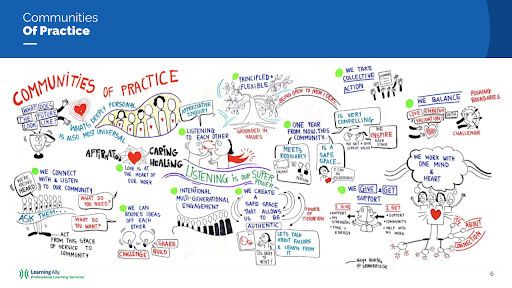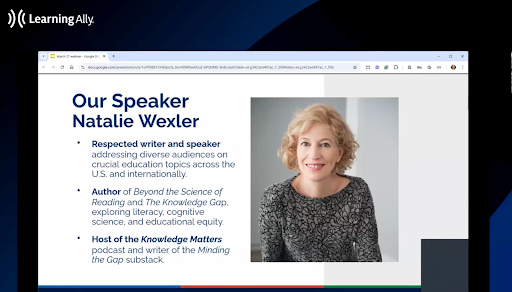Summer is nearly here! Time for sunshine, adventures, and... reading! That's right, parents and educators, Learning Ally is back with their fantastic Summer Reading Together competition, and this year it is all about unlocking summer fun through the magic of reading.
Categories: resourceLearning Ally Blog: Access and Achievement
Now more than ever, people with learning and visual disabilities are flourishing in the classroom, launching productive careers and becoming assets in their communities. This blog spotlights remarkable individuals who demonstrate that having a visual or print disability is no barrier to educational success.
To recognize Teacher Appreciation Week, we're honoring educators who transform lives through their unwavering dedication.
Categories: resourceAs a teacher, I often felt isolated. Not from my students—I was too busy with them to feel lonely, and I truly cherished every minute in their company. But when it came to my colleagues, it was a different story entirely.
Categories: resourceUnlocking Literacy: Strategies to Help Struggling Readers Access Complex Texts
Categories: resourceWhen the 2024 National Assessment of Education Progress—the Nation’s Report Card—was released in January, it set off loud alarms about U.S. student literacy skill development. Once again, reading scores declined, adding to a decade of decreases. In fact, average reading scores declined in 2024 for students in 4th grade and 8th grade by 2 points[...]
Categories: resource


